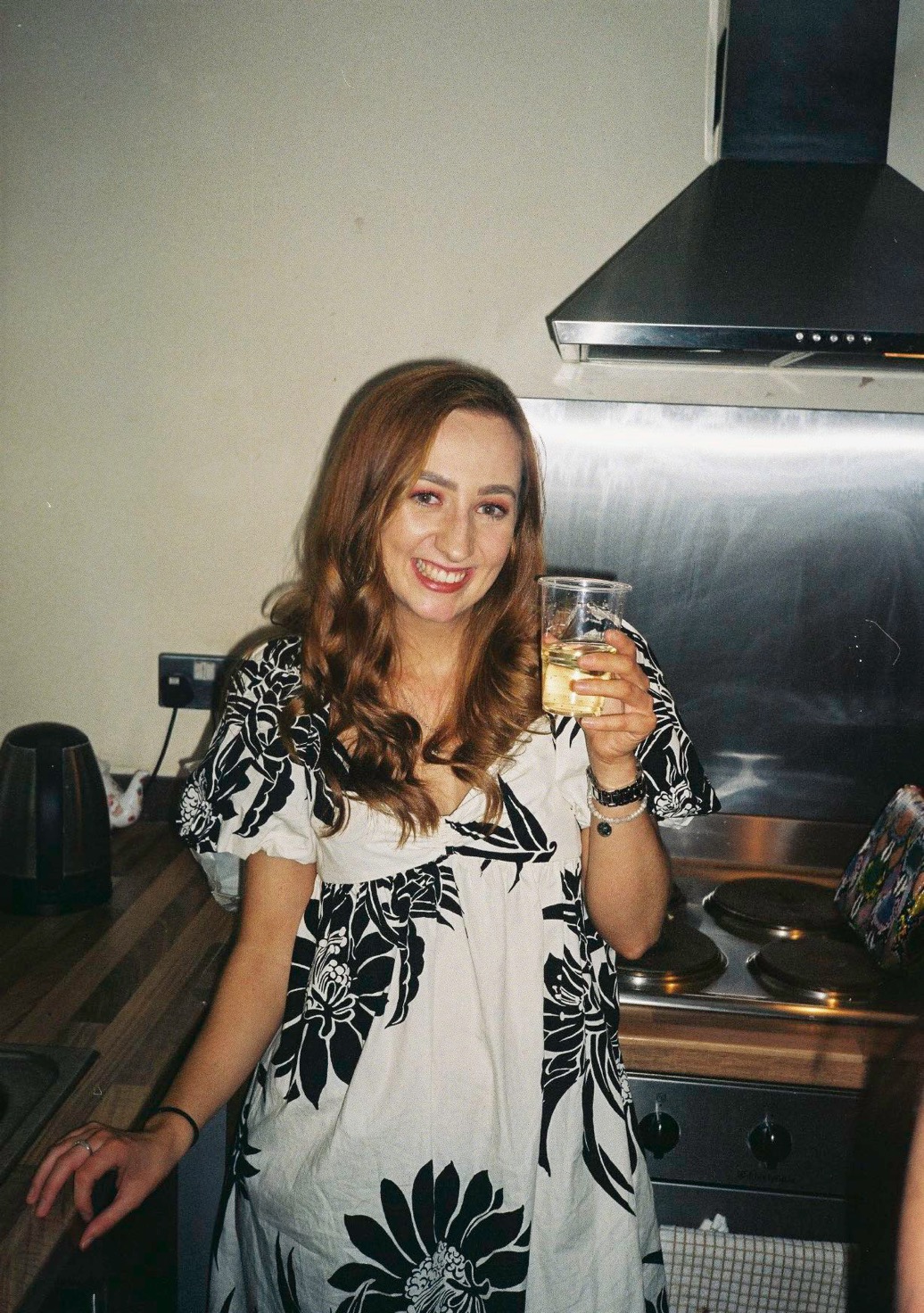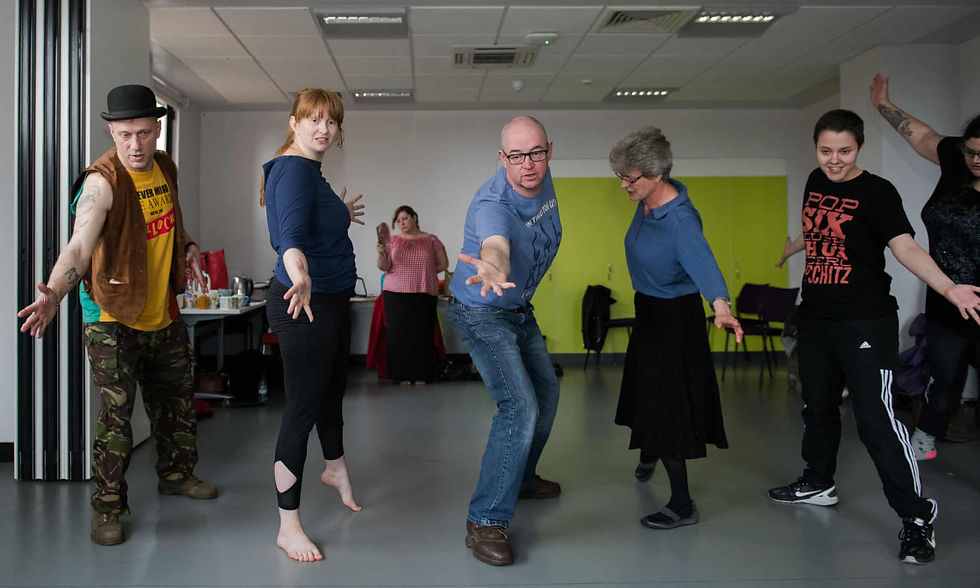Drama Therapy: A workshop with Mary Franklin-Smith
- Natalia Williams

- Feb 20, 2020
- 4 min read
Updated: Mar 2, 2020
The module unfolded with alumni guest speakers telling us about their journey's post university, and how they utilised their drama degree to their advantage. One workshop in particular with drama-therapist Mary Franklin-Smith really opened my eyes about theatre and its many ways in helping and shaping society for the better. She is a well respected and registered arts therapist, systematically using drama to overcome psychological boundaries. She told us that drama therapy is often useful for people who can't express what they want to say, so instead, express it through their body.
“Drama therapy has as its main focus the intentional use of healing aspects of drama and theatre as the therapeutic process. Drama therapy is a form of psychological therapy in which all of the performance arts are utilised within the therapeutic relationship.” -BADth
The advice she gave us and the techniques she used was inspiring. After experiencing therapy myself and initially failing to understand what I was feeling and why, I found it hard to vocalise my issues in order to overcome them as I felt I couldn't justify being there because other people had it a lot worse off than I. However the cognitive behavioural therapy really helped me over come this feeling, and my therapist included some acting techniques that could help me overcome my anxiety. So speaking to someone who uses that technique solely for therapy was really interesting and helpful in my own journey to dealing with mental health issues.
Workshop and Techniques
At the beginning of the workshop, Mary asked us to think of a song that affiliated with a past memory, then, go around the room and sing a short snippet of it. Obviously, everyone panicked. After a fluster of nervous reactions and discussions about the task, Mary admitted it was just a test and that we didn't need to sing. She instructed us all to close our eyes and think of a word that best described how we felt when she asked us to sing and point to the part of the body that felt it. Most people felt stressed, anxious or embarrassed, pointing mostly at their chest, stomach or head. Mary told us that drama therapy aims to tackle the physical feeling you feel when you're anxious or stressed, disassociating physical feelings from mental ones. This was really helpful in understanding that you are always going to feel things, such as stress or anxiety, but dealing with how your body reacts to those feelings can be brought to a minimum, making those stressful times seem a lot easier to deal with.
"what words can't, actions can."
Mary talked us through a lot of techniques known as "bridge-in" exercises she uses in her therapy sessions. we each chose a character on a card or a toy object to symbolise our inner voices on a ‘good’ or ‘bad’ day. We then discussed in groups what our object was and why it symbolised us in some way. The exercise shifted to us then placing the object on a chair, facing a second chair that was empty. We each sat and faced our object, and gave it a voice that symbolised what our inner voice would tell us if it were real. Then, we would response as ourselves, challenging that inner voice, overcoming it. By physicalizing what we tell ourselves in our own heads, we all agreed that what we were telling ourselves were extremely unfair and exaggerated once we spoke them aloud, feeling as though they were a lot more insignificant. This exercise was extremely important to me and encouraged me to research further into Mary and the world of drama therapy. Mary spoke about how drama therapy can be found within NHS and other health care facilities, so I wanted to find out more about how it has helped people in a way speech therapy couldn't.
Drama therapy in the NHS
Drama therapy is an extremely demanding job, and isn't an easy process to get into. You only qualify as a specialised drama therapist if you achieve a master degree studying it, making the chances of becoming a drama therapist very slim. In 2018 for example, only 4,363 arts therapists were registered in November with the Health and Care Professions Council. It shows how mentally and physically demanding drama therapy is, and the NHS only want the best of the best working in the industry. My search began with Keryy Shabolt, 47, from Hertfordshire, who stated "drama saved my life". Kerry suffers with multiple personality disorder, and feared for her life due to suicidal thoughts. However, she attending a group drama therapy group called May Contain Nuts, "an award winning theatre company of people with experience of mental ill health"*. They meet once a week at the Hertfordshire partnership NHS foundation trust and improvise scenes that involve topics surrounding mental health issues and experiences they've had in the past. However Kerry found this group through her drama therapy, which was soon to end. Drama therapy is a huge help for people like Kerry, however the therapy cannot continue forever. The NHS is largely underfunded and cannot continue to keep seeing vulnerable people, people who still need assistance. Patients now are either waiting for endless amounts of months for counselling, and once they do eventually get it they get a limited time for it. Sarah Hughes, the chief executive of the Centre for Mental health stated that “Long waits for mental health support can be both costly and distressing for people. From childhood to later life, it is vital that mental health support is on hand when people need it”.
Despite Mary's efforts to help others through her drama therapy techniques, it seems a though there is a long way to go in giving people the correct treatment as quickly as possible, due to lack of funding in the health sector, especially when it comes to mental health. It is not treated as a necessity, however can be a matter of life or death for people like Kerry, who hugely depends on drama keeping her on track with her mental health issues. Luckily, drama groups are open to anyone, and are always accessible to people if they cannot be guaranteed a drama therapist straight away. It just goes to show how important the creative arts are to people, especially drama, in more ways than one.
* "May Contain Nuts won in the mental health category, sponsored by the Guardian, at the UK Advancing Healthcare Awards for allied health professionals and healthcare scientists leading innovative healthcare practice."




Comments